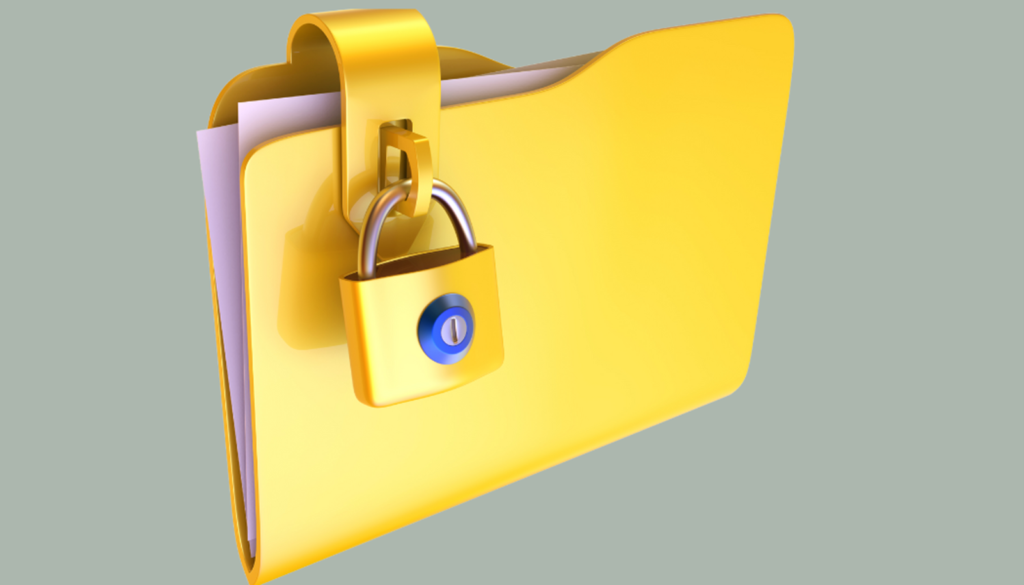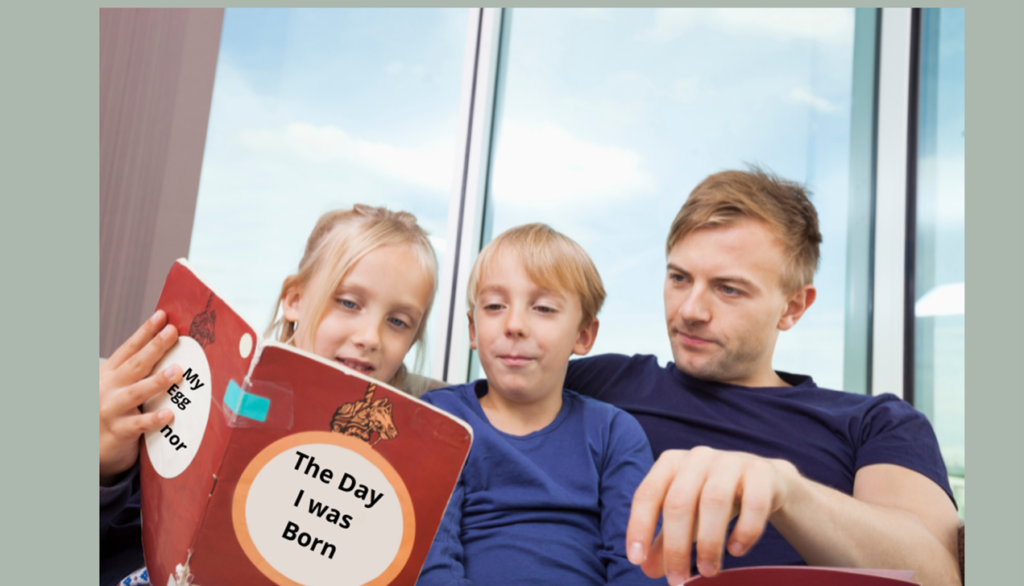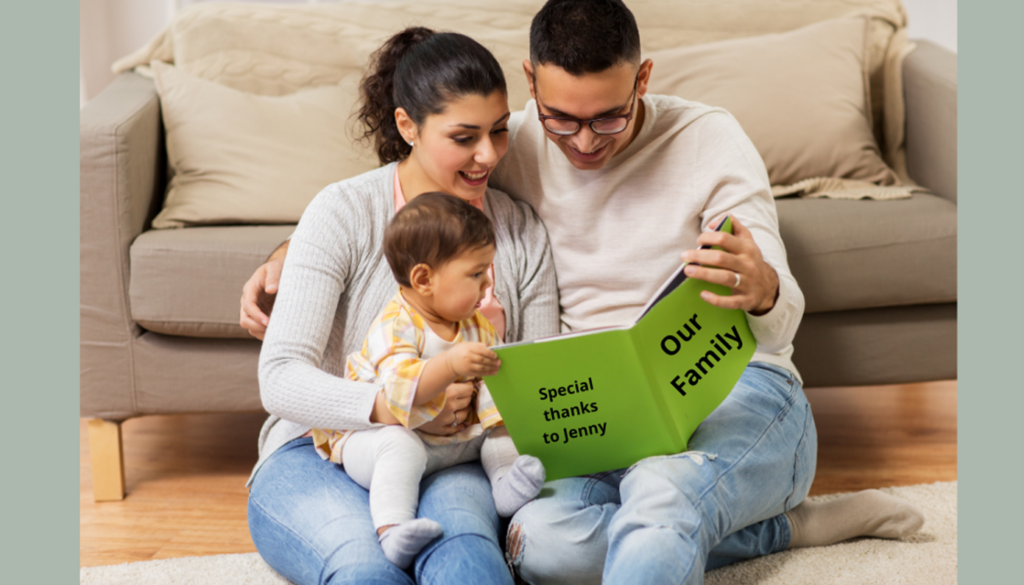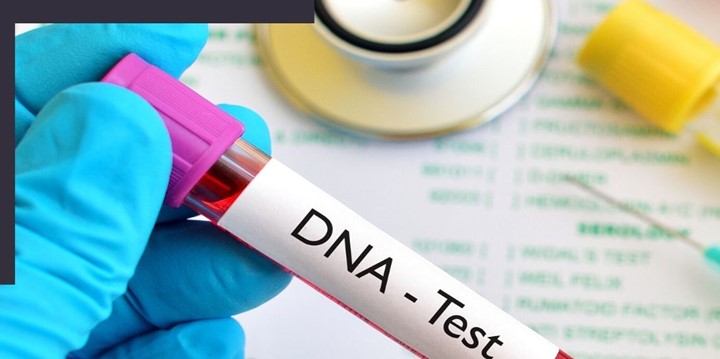With the advent of advanced technology like facial recognition and DNA testing, anonymous egg donation is becoming nearly nonexistent.u00a0 The prevalence of services such as 23&Me and Ancestry has made it highly likely that a child conceived through egg donation will have the means to discover information about their donor or extended family. In today’s interconnected world, the concept of anonymity has been challenged, and intended parents must come to terms with this reality.
nu00a0
nAccepting this new reality empowers donors and parents to proactively consider the potential for future contact between the donor-conceived child and the egg donor or her family. u00a0Rather than leaving it to chance, it is essential to contemplate and address this possibility in advance. u00a0By doing so, intended parents can plan and navigate these relationships thoughtfully and measuredly, ensuring a more comfortable and meaningful connection if it occurs. u00a0Stories of donor-conceived children reaching out to their donors or extended family abound online, highlighting the importance of being proactive in understanding and preparing for modern technology’s implications on egg donation dynamics. u00a0
nu00a0
nIntended Parents often opt for egg donation over adoption because they desire to establish a genetic connection with their child. They wish to experience the pregnancy journey or participate in the pregnancy process through surrogacy. This choice presents a thought-provoking conundrum: u00a0If having a genetic link is significant to the Intended Parent, would this not also hold significance for their child?
nu00a0
nThe contact issue between the intended parent and a donor may also be influenced or dictated by the laws of the country where the intended parent or donor resides – or even the location of the embryo transfer.u00a0 u00a0For example, in countries such as Britain, Australia, and Sweden, children conceived via egg or sperm donation are legally permitted to find out who their genetic contributors are when they turn 18.u00a0
nu00a0
nHowever, as you will see from the information below, this can vary immensely from country to country u2013 even if they are next door to each other. u00a0For example, Egg donation, at the time of the writing of this article, is illegal in Italy and Germany.u00a0
nu00a0
nHowever, egg donation is permitted in France only if anonymous, and the donor cannot be compensated.u00a0
nu00a0
nIn Canada, egg donation can occur only if non-anonymous and no compensation is paid to the donor.u00a0
nThey can compensate their donors in South Africa, the Czech Republic, and Spain, but all donations must be anonymous.u00a0
nu00a0
nIn the UK, Donors must be non-anonymous but can be compensated.u00a0
nu00a0
nIn the USA, Egg donors may be compensated and anonymous or non-anonymous. Still, some States have now implemented laws that permit non-identifying donor information to be released to a donor-conceived child once the child reaches the age of 18 and requests such information.u00a0 The laws on anonymous, non-anonymous, and compensation to a donor are continually changing.u00a0
nu00a0
nThe decision to tell a child about their genetics or unique beginnings is primarily the sole domain of the parent(s) who created that child.u00a0
nu00a0
nThe decision concerning contact between an intended parent and an egg donor is highly personal and should be made after carefully considering what is best for all parties involved. While some egg donors may prefer to maintain a certain distance and privacy, others may have additional reasons, such as using their compensation for specific personal goals like college funds, weddings, or home deposits, which they may wish to keep private from their extended family. As such, open and honest communication is crucial in determining the level of contact both the intended parent and egg donor are comfortable with. u00a0There are various valid and practical reasons why they may choose to identify with each other or choose not to be identified, so it is essential to discuss this matter thoroughly.
nu00a0

Five Categories of Contact
nu00a0
nContact between the intended parent(s) and egg donor can be divided into five main categories:
nu00a0
n- n
- Anonymous: no identifiable information is shared between the parties. n
- Identity Known: The donor-conceived child, upon reaching the age of 18 years, shall have a right to the donoru2019s non-identifying medical information. n
- Shared Information: the donoru2019s identifying information is shared with the intended parent with the agreement that at some time in the future, both parties are open to discussing more contact. n
- Open or non-anonymous: the intended parent(s) and egg donor have willingly shared identifying information and actively communicated with each other. This may involve personal meetings or virtual interactions, such as video calls, fostering a more transparent and potentially ongoing relationship. n
- Designated Donation: someone known to the intended parent(s), such as a friend, family member, or acquaintance. n
u00a0
nBetween options 1-4 above, many degrees of openness and anonymity exist. u00a0u00a0Intended parents and donors can talk on the phone without sharing identifying information; the intended parent and donor can write a note to each other, and the agency or doctoru2019s office can facilitate delivery of it; the parties can exchange first names, but no additional identifying information, etc.
nu00a0
nThings to Consider
nu00a0
nIt must be acknowledged that egg donors are often young women, many of whom have not had children or completed their families.u00a0 The person they are when they are 25 years or younger may well be different from the one they will be when they are 43+.u00a0 Their life circumstances would almost certainly have changed, and their subsequent opinions on their donation may also vary.u00a0u00a0
nSo regardless of the option an intended parent selects, it is highly recommended that an intended parent consider writing a thank you note to their donor.u00a0 Depending on your relationship, this letter can be delivered to her either before she has been formally selected or after donation, which can be delivered in person or via the nurse at your fertility practice. u00a0This letter is the basis of how she perceives you in the coming years, which may have a bearing on your child if they choose to reach out at a future date.u00a0 u00a0We recommend that the letter include information about the intended parentu2019s infertility journey before you choose her to be your donor.u00a0 In addition, include information about ages, whether single or in a committed relationship, a heterosexual or gay married couple, country of birth, and country of residence (you can be vague, such as USA or Europe).u00a0 u00a0Be sure to include your desire to become a parent and thank the donor for making this journey possible. u00a0A sample of this letter can be found on our website.u00a0 The letter can be signed using your first name, middle name, or initials.u00a0
nu00a0
nThe concept is simple. The choice might not be.
nu00a0
nA consultation with a mental health professional experienced in egg donation is highly recommended. u00a0u00a0All the options can be explored in a safe, confidential environment so that the ultimate decision made by the intended parent and the donor is based on informed consent. u00a0u00a0In addition, opening a discussion with the egg donor to determine if she is open to some degree of communication permits the mental health professionals to gather potentially valuable clinical information on the donor, which may impact their ultimate clinical assessment of that donor.u00a0u00a0
nLooking at each option in detailu2026
nu00a0
nAnonymous Donation
nu00a0
nSome intended parents may choose to prioritize privacy for themselves and their children in the process of using donor eggs. u00a0They see the donor eggs as one of the components that brought their child into existence, but without their intention and desire to create a family, the child would not exist as it does now. u00a0u00a0If the donor eggs were not used by these intended parents, the eggs might have been lost with her next menstrual period, or another genetic child would have been conceived when a different set of intended parents selected the same donor.u00a0 u00a0For some, the decision to opt for an anonymous donor allows them to maintain confidentiality and establish a more clearly defined relationship between themselves and their child. u00a0Not every intended parent seeks to create a family relationship between the donor and the child conceived using donor eggs. The donor’s anonymity provides a sense of distinction between the roles of the donor and the intended parents in the child’s life.
nu00a0
nSimilarly, some donors want to maintain their privacy despite wanting to help another person become a parent.u00a0 Not all donors want to form a relationship with the intended parent or parents they are helping. u00a0
nu00a0
nIn certain countries, the laws strictly enforce anonymous egg donations, prohibiting direct contact or interaction between the intended parents and the egg donor. u00a0In these cases, the fertility doctor and their team take charge of selecting an egg donor who closely resembles the intended parent’s physical characteristics. The intended parents have limited or no involvement in the donor selection process, leaving it entirely to the expertise of the medical professionals.
nu00a0
nThe extent of information available about an anonymous egg donor can vary significantly. It depends on several factors, such as the prevailing laws in the country, the policies of the fertility clinics, and the practices of the egg donor agency. Some intended parents may have access to a wealth of details, including adult and childhood photos of the donor and written answers about her personality, hobbies, talents, and interests, and can communicate directly with the donor. u00a0On the other hand, some may have access to limited or no information about the donor. The range of options available in this regard is vast and diverse.
nu00a0
nIn Anonymous cases, the Intended parents know that their children may one day decide to find their genetic contributor.u00a0 They are aware that existing DNA tools are available to locate that donor.u00a0 In this way, intended parents leave the decision up to the child.u00a0 Remember that although a donor is anonymous, the Intended Parent has the right to tell their child about their unique beginnings.
nu00a0
nNote:u00a0 Being an u2018Anonymous donoru2019 is no longer guaranteed today.u00a0 The donoru2019s identity may be unknown to the intended parent, but her details and health history will be known to the fertility clinic and ultimately traceable via DNA testing.
nu00a0
nu00a0
nIdentity Known
nu00a0
nThe donor-conceived child, upon reaching the age of 18 years, shall have a right to know the donoru2019s non-identifying medical information. u00a0This option is currently not widely available, as it is a new option in the ever-changing legal landscape of Third-Party reproduction.u00a0 u00a0Some countries, such as the UK, Australia, and Sweden, have been at the forefront of this option.u00a0
nu00a0
nAs an example, in 2011, Washington State was the firstu00a0state in the USA to challenge sperm and egg donor anonymity with a law that requires State sperm banks and egg donation agencies with eggs and sperm to provide the donoru2019s medical histories and, importantly,u00a0full names,u00a0to donor-conceived persons upon turning 18 years of age. u00a0Since then, several other States have introduced their version of this law.u00a0
nu00a0
nAs of January 2020, California implemented a version of this law to allow for an Identity Known option, granting donor-conceived persons the possibility to know the identity of their egg donor. u00a0While this represents a step forward in promoting transparency, some critics argue that the law could be improved since it permits donors to choose anonymity. u00a0This opt-out provision raises concerns among donor-conceived persons seeking complete transparency about their genetic makeup.
nu00a0
nOne of the notable issues with the Identity Known option is that safeguarding the donor’s identity information rests solely on the fertility clinic. u00a0While clinics have protocols to protect this sensitive data, there is no guarantee or backup plan in case the clinic faces unforeseen circumstances, such as closure, acquisition, or accidental data loss. u00a0This potential vulnerability leaves intended parents with uncertainties about the long-term security of the donor’s identity information.
nu00a0
nGiven the significance of this matter for donor-conceived persons, intended parents, and donors alike, ongoing discussions and potential revisions to the law may address these concerns and further enhance the regulations surrounding the Identity Known option. u00a0Striking a balance between donor privacy, the intended parents’ desire and the rights of donor-conceived persons for complete information remains an important consideration as assisted reproduction continues to evolve.

Shared Information
nu00a0
nThe donoru2019s identifying information is shared with the intended parent with the agreement that at some time in the future, both parties are open to discussing more contact.u00a0 This is an excellent alternative for intended parents who are reluctant to meet a donor face-to-face.u00a0 The idea is that the intended parent is the u201cgatekeeperu201d of their childu2019s genetic information and access to the donor.u00a0 In addition, and beneficially, the donor has consented to future contact if requested by the intended parent or the child.u00a0 By default, the donor has no preconceived notion that she will be anonymous and may very well be more open to future contact should the donor-conceived child request such contact.u00a0
nu00a0
nThere is no guarantee that the donor will want contact years into the future, but the door has been u201cheld ajar u201cand is not firmly closed against the contact option. u00a0We recommend that the intended parent keep several copies of the donoru2019s contact information in case of loss; at least one copy should be in a safe or similar option.u00a0 Ensure your Will instructs your Trustee on what to do with these documents.u00a0 Another suggestion is that the egg donor be given the means to communicate with the intended parents in case valuable health information learned later in life needs to be shared.u00a0 This can be done by creating a private email account or through the intended parentu2019s attorney or mental health provider.u00a0
nu00a0
nOpen or Non-Anonymous
nu00a0
nThe intended parent(s) and egg donor have exchanged identifying information and met one another in person or communicated via phone, video, or in person.u00a0 It is natural for people conceived via egg donation to be curious about their egg donor.u00a0 Providing the person with the option to contact the egg donor can offer an empowering choice to the child. u00a0u00a0The fact that the information and contact option is available to a child may well be all the child needs, and they may elect not to have further communications with the donor.u00a0
nu00a0
nAs an example, here is a story of open donation:u00a0
nu00a0
nGay intended parents from Norway selected an egg donor and surrogate.u00a0 They flew to the USA to meet their egg donor and surrogate, and the two ladies were asked if they wanted to meet each other.u00a0 The intended dads, their egg donor, and the surrogate all got together.u00a0 The surrogate conceived twins (one child created from each dadu2019s sperm but from the one egg donor).u00a0 Throughout the pregnancy, the egg donor, surrogate, and the dads kept in close contact. u00a0The dads visited both ladies twice during the pregnancy.u00a0 After the birth, the dads sent regular updates to their donor and surrogate, sharing pictures of their twins. u00a0u00a0Five years later, when the egg donor got married, the twin girls were her bridesmaids and the surrogate her maid-of-honor.u00a0 u00a0These two girls will grow up knowing that it took a u201cvillageu201d to create them and that they have a welcoming extended family.u00a0
nu00a0
nOf course, this example is extreme, but it is an excellent example of the options available to the parties when there is openness.u00a0 Note:u00a0 this is a true story.
nu00a0
nDesignated Donation
nu00a0
nThe scenario where a family member or friend has agreed to donate to that intended parent.u00a0 This is the ultimate blessing!u00a0 Someone you have known all your life or a good part of your life steps forward to offer help in creating a family. u00a0u00a0Some may argue that once a family member or friend agrees to be a donor, there is no need for a lawyer or a mental health professional to be involved because they trust their donor.u00a0 However, we strongly recommend that every donor complete an Egg Donor Questionnaire and that all parties consult with a mental health professional (individually and as a group). u00a0u00a0
nEach party should ideally have its lawyer. u00a0A mental health professional will discuss setting boundaries and obligations for egg donation. u00a0This professional will discuss how everyone will handle life changes, such as what if the intended parents get divorced. u00a0u00a0
nWhat if the intended motheru2019s sister is the donor, and the intended father wants to move his child to another state after the intended mother dies? u00a0u00a0Of course, the intended parent(s) have the right to their own family, but there is an u201cexpectationu201d that the donor will be part of the childu2019s life.u00a0 u00a0
nWho will tell the child about their unique beginnings and when?u00a0 This is just the tip of what needs to be discussed between the parties, and it is in the interest of the donor-conceived child and the donoru2019s children that this is all discussed and agreed upon before a donation occurs.u00a0 u00a0A legal expert can impartially guide everyone regarding the parties’ legal interests, obligations, rights, and duties, including the disposition of remaining embryos.u00a0 A legal document can ultimately protect your relationship and remove stress further down the line.
nu00a0
nOther Background Information
nu00a0
nThe term u201cgenealogical bewildermentu201d was coined in 1964 by psychologists H. J. Sants & Wellisch. u00a0It refers to the plight of children who have uncertain, little, or no knowledge of one or both of their biological parents.u00a0 u00a0This term was initially coined for children who were adopted or raised by a single parent without any knowledge about the second parent but has now been extended to include children born via egg donation, sperm donation, and surrogacy.u00a0 Sants wrote that u201cthese children may not always show overt concern about their lack (of knowledge about their missing biological parent) u2026 at every stage of their developmentu201d, but that they will begin searching for clues. u201cu2026 The preoccupation (searching for clues) amounts to an obsession in that genealogically deprived child who feels that a solution to this one question would solve their troubles.u201d
nu00a0
nThis idea of genealogical bewilderment has been recently renewed by the growing science of epigenetics and the idea that our genes have memory.u00a0 Essentially, epigenetics alludes to the notion that our mental and physical well-being depends on our ancestors’ actions. u00a0As epigenetics is explored, the more important it may become to some people to understand their entire heritage. u00a0u00a0The u201cGhost in our Genesu201d may propel some children born via egg donation to explore their genealogy more deeply.
nu00a0
nMost psychologists recommend being open and honest with children from an early age. u00a0u00a0There are many groups for the donor (sperm and egg) conceived people that make a strong case for their rights to have access to information about their genetic background. u00a0For donor-conceived people who find out after a long period of secrecy, their primary grief is usually not that they are not the genetic child of the mother who raised (and, usually, gave birth to) them.u00a0 Their primary grief is that their parents lied to them, causing a loss of trust. u00a0Parents who disclose donor conception to the child emphasize the importance of an honest parent-child relationship.u00a0 Parents who do not disclose often desire to protect their children from social stigma or other trauma.
nu00a0
nThe argument is swaying towards open donation at professional meetings in Third-Party Reproduction.u00a0u00a0 The thought is that if a child finds out later in life that their genetic origins were a u201csecret,u201d the child may assume that their parents are ashamed or embarrassed that their child was conceived via egg donation, which is why their parent kept this a secret.u00a0 This could easily translate into the donor-conceived child feeling their parents are ashamed or embarrassed of their child. u00a0u00a0
nThere may also be a sense of betrayal and of having been lied to by the very people u2013 a parent u2013 whom they are supposed to be able to trust.u00a0

Then there are the small events in life that your child will be aware of and could be interpreted by your child as a lie: it could be your childu2019s questions about her unusual eye color shade or a friendu2019s comment on your childu2019s athletic prowess; maybe it will be a teacheru2019s question about a possible learning disability; maybe how you handled your childu2019s fear over your familyu2019s history of breast cancer. At some stage, your child may have many questions. How you answer them may have profound meaning and consequences for the child you helped create.
nnThe standard advice from parents who have told their children about their egg donor is to start early. The recommendation is to start the conversation when you bring your newborn baby home from the hospital. You may stumble over the words, cry, be embarrassed, and feel silly, but by the time the child starts to comprehend, you will be an old pro at both the words and the tone. Gradually and naturally, more information will be shared through the years in small conversations. Here are some quotes that may be helpful to you:
nnI had no reason to ‘not tell’ my children that I could logically verbalize.
nMy parents told me because they thought I deserved to know.
nMy parents told me that because they are sincere and have always refused to lie u2026 they would not lie about anything.
nI cannot remember when or how I was told; I have always known.
nMy parents used to read me a storybook they called u201cThe Night I Was Born,u201d so I sort of always knew. I sometimes stopped them and asked questions.
nnAs professionals in this field for over 40 years, we can share with you some undisputed facts. We have yet to meet a parent who regretted telling their child about their unique beginnings, and we have never met a child who has told us they wish they had never been told.
nnParents have shared with us that their recommendation to other parents is:
n- n
- Tell early. n
- Keep your story simple. n
- Discuss the story more as a u201cfamilyu201d story instead of just making it about them. n
The decision as to what type of contact with a donor lies with the parents – there is no right or wrong. However, that is a separate issue from the right of a child to know about their genetic history.

u00a0u00a0u00a0u00a0u00a0u00a0u00a0u00a0u00a0u00a0u00a0 it is time to get comfortable with tellingu2026
nu00a0
nAuthor: Karen Synesiou, InfertilitiyPortal, Inc.


